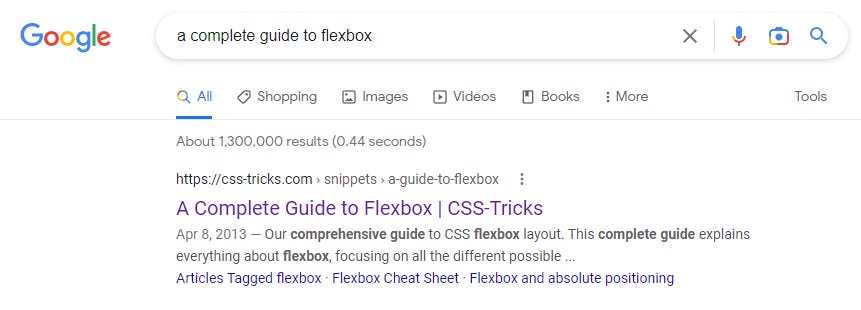Don’t Sell Your Indie Business to Digital Ocean!
Week 73 of Founding Typogram
The sad part of the story is that most of what happened can’t be traced easily. Domain redirect can be set up with a few clicks of a button, and soon enough, most people forget these indie blogs ever existed and what happened to them. I want to write down what I saw so that there is a record of what Digital Ocean has done or has not done.
Back in 2014, I turned to Scotch.io to learn AngularJS. Scotch.io offered clear and concise tutorials that were easy to follow, even for someone who was new to the framework. I saved many tutorial articles to my browser’s bookmark; as I don’t clean up my bookmarks, I still have them saved up in my messy bookmark folder today.
One day I dug up and clicked on a scotch.io article from my bookmark and was surprised to see that it returned a “404 page not found” error. After some research, it turned out that Digital Ocean bought scotch.io, so consequently, the scotch.io home page got redirected to Digital Ocean’s homepage, and articles like the ones I saved were removed.
What was my problem with that? I didn’t know where to begin. Redirecting a blog to a product page with no context was just intentionally wasting my time — why would a visitor of a blog not be surprised to land on “Try Digital Ocean for free for 60 days”? And the cherry on top? Not setting up a wild card page rule to redirect all scotch.io article links to Digital Ocean, hence why I got a 404 error — they can’t even do their evil with efficiency. They wanted to milk this cow dry but had a leaky bucket — the stupidity, the carelessness, the insult to the editor who spent years creating quality content. Also, wasn’t Digital Ocean a service to host websites? Setting up page redirects is literally part of their service, and what a demonstration they had put on!
The above was what I witnessed in 2022. As of writing this article in February 2023, Digital Ocean has fixed some of the issues. Now all links of scotch.io redirect to the Digital Ocean community, which at least hosts some tech content. The original blog articles of scotch.io are still missing from the Internet. I searched for the titles that were saved to my bookmarks and couldn’t find them, on the Digital Ocean community or elsewhere. It is as if they were never written.
What triggers me to write down these words above as “record” is that Digital Ocean bought CSS Tricks — another beloved tech blog — about a year ago, and recently they laid off the only editor of CSS Tricks. It is entirely possible that one day we will lose access to CSS Tricks content like “A Complete Guide to Flexbox” — a front-end “staple food,” a link that always shows up in purple in search results; and instead, we get to enjoy losing 3 seconds of our life being redirected and then bounce.
Some of you may think that Digital Ocean will treat CSS Tricks more nicely, and that they won’t take down its quality content written over a decade of time. CSS Tricks is much more famous and high-profile than scotch.io, after all. I wouldn’t be too sure because of what happened to coding-fonts.css-tricks.com — go ahead, click on it. It is broken and just redirects to another page.
I launched a similar project called codingfont.com back in 2021, which is a tournament-style game to pick the winner coding font. Chris Coyier, the founder of CSS Tricks, wrote about it, which brought massive traffic to my site (Thanks, Chris! I am grateful as a fellow tinkerer). The article mentioned that CSS Tricks had built their own coding font microsite. Fast forward to May 2022, less than two months after CSS Tricks got bought, the CSS Tricks microsite was broken, and someone reported an issue on Github. Chris, who would be in an advisory role according to the Digital Ocean announcement, answered quickly:
I’m afraid I’m not sure what Digital Ocean plans to do with it. I would, of course, vote for it to be re-hosted right at coding-fonts.css-tricks.com — and would be happy to help put it on Digital Ocean App Platform as well!
It was clear that Chris as an advisor wasn’t given any real access to decision-makers at Digital Ocean to make any difference in such a simple matter. It was such a simple and easy matter to solve that a bystander came forward and hosted the microsite somewhere else, ironically on Netlify — a competitor to Digital Ocean.
So there you go, another record I put down here in case Digital Ocean bothers to correct it one day, let the Internet remember that it had happened.
My open plea to Digital Ocean:
Stop this unethical business practice NOW! Your company buys these blogs to build a good reputation among the developer community, but clearly, the plan has failed. Instead, it hurts your brand, and I will never use your service. It is not too late to keep your promises — publish new content to the site, or at least keep the site alive and working as it is.
My appeal to other content creators: Don’t sell your indie business to Digital Ocean.
❧
See you next week! If you have friends who are interested in founding startups, please consider sharing my newsletter with them!



